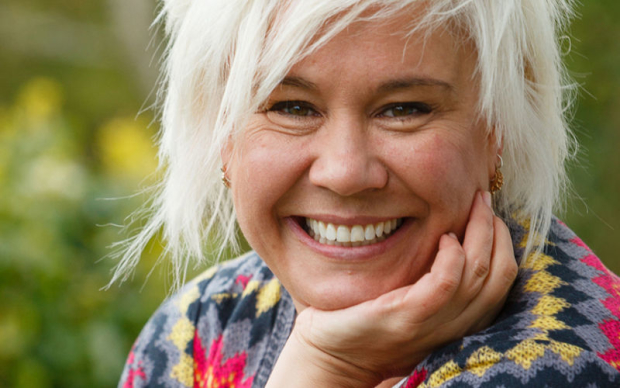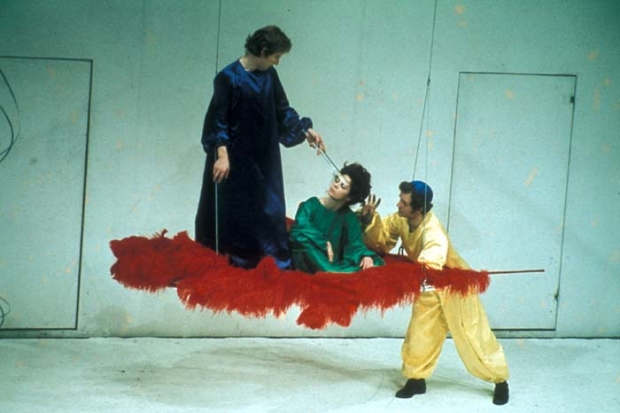Michael Coveney: Will Emma Rice bring circus to the Globe a la Brook's Dream?
The surprise appointment of Rice at the Globe prompts memories of a landmark Shakespeare production

There's nothing new under the sun in Shakespearean production, but the surprise appointment of Emma Rice, of Kneehigh Theatre, to succeed Dominic Dromgoole as artistic director at Shakespeare's Globe suggests that something even more communal and festive than DD's reign is on the cards.
I admit I was expecting – indeed, hoping – that the job would go to Lucy Bailey, who has a great sense of music and design in all her productions and whose Titus Andronicus has been one of the stand-out productions – certainly in the top five – in the entire history of the place from Mark Rylance through Dromgoole.
Although there are some who will never forgive Rice for her West End revival of The Umbrellas of Cherbourg – as there were some who would never have allowed Dromgoole near the Bard after his disastrous Troilus and Cressida at the Old Vic – she has proved over the years she can mobilise actors and inspire audiences with some great theatrical projects such as Red Shoes, Trystan and Iseult and the extraordinary Brief Encounter, which made of Noël Coward a poster boy for the commercial avant-garde (as indeed he was to start with).
Will she have actors swinging from the chandeliers, asks Lyn Gardner? Very probably – and rushing through the audience, spinning plates, hanging from trapezes, playing on tubular bells and speaking each others' lines, just as Peter Brook did in his legendary 1970 RSC production of A Midsummer Night's Dream, a landmark celebrated in Sue McGregor's Radio 4 programme The Reunion this week; Brook himself was joined in conversation with Sally Jacobs (his designer) Sara Kestelman (Titania/Hippolyta), Frances de la Tour (Helena), Ben Kingsley (or "Sir Ben" as he prefers to be known, Demetrius) and Barry Stanton (Snug).
The Brook Dream, which is now, I understand, a set text in performance studies, is one of those "I was there" moments, like England winning the World Cup or having an aunt who went to school with John Lennon. It turns out everyone was there and had that aunt. But I really did see the Brook Dream – when it came down trailing clouds of glory from Stratford-upon-Avon to the Aldwych – and I can see and hear it vividly still.
This is the point. Brook told Sue McGregor that his first reaction to her invitation to discuss the show was to refuse. Even at 90 years old, he never looks back, always looks ahead. But the discussion convinced him – it's repeated tomorrow and is available on BBC iPlayer – that what belongs in the past, when it's alive in the heart, as it was, overwhelmingly, in the programme, can renew the life of the experience for all who wish to share it.
And even after all these years, as a critic (though I wasn't when I saw it; well, perhaps I was without knowing it), I can feel it still. It's part of the baggage whenever I go to a new production, though I'm careful, I hope, to park it at the cloakroom before a new version begins. We heard the late Alan Howard (Oberon/Theseus) declaim "I know a bank where the wild thyme grows…" and Sir Ben said he mumbles that speech whenever he and his gardener – love it that he got in a reference to his staff – are at work, and I see (and hear) Howard still, limbs akimbo in a white floral print kimono on a swaying trapeze, just as I see (and hear) Sara Kestelman still, erotically awakening in her suspended red feather bower.

Everyone, but everyone, loved this production – apart, famously, from Benedict Nightingale, who gave it the bum's rush in, I think, the New Statesman. Brook revealed that a West End producer recently wanted to revive the show as it was, with a new cast, in the West End. Brook, of course, sent him back a contemptuous letter. Nor is there a film available. One live recording was made on the world tour in Japan but the tape was destroyed, presumably on Brook's orders. Paradoxically, Brook said that this wallow in reminiscence underlined the reason for starting again as each new day breaks. And it brought home to him afresh the ephemeral nature of all human endeavour, not just theatre, and the encroachment of mortality.
Brook said there were two major influences on his white box production – Sue having reminded us that Harley Granville Barker said, a hundred years ago, that all that was needed for Shakespeare was "a great white box"; and that's precisely how William Gaskill staged Macbeth (of all plays!) at the Royal Court with Alec Guinness and Simone Signoret in 1966, four years before this Dream – the first was the visit of the Chinese acrobats to Paris; the second was… infuriatingly, we never found out, as the discussion moved along a bit too quickly.
After the Dream, Brook founded his international research centre at the Bouffes du Nord in Paris and moved on, to the dismay, recorded in this programme, of both John Gielgud and Kenneth Tynan. But he returned to Stratford in 1978 to direct Antony and Cleopatra with Alan Howard and Glenda Jackson. It was not a success, staged intimately with lots of cushions on the main stage. But one flame burned: that of Jonathan Pryce as Octavius, the same JP who opened the new Globe season last week as a compelling and original Shylock in The Merchant of Venice. Pryce was a nay-sayer to the Globe for years, mistakenly thinking – as did so many – that it was no more than a heritage site.
Rylance and Dromgoole have each made the Globe a vibrant and popular success in ways that no-one, not even the founder Sam Wanamaker, can have imagined. It's a place of constant energy, surprise and excitement, and the stars are the audience, who still pay £5 to stand in the pit of London's most popular and successful (unsubsidised) theatre. It's that spirit of Brook's Dream – radical, improvisatory, sexy, available and acrobatic – that Emma Rice inherits and she is both lucky and blessed.













